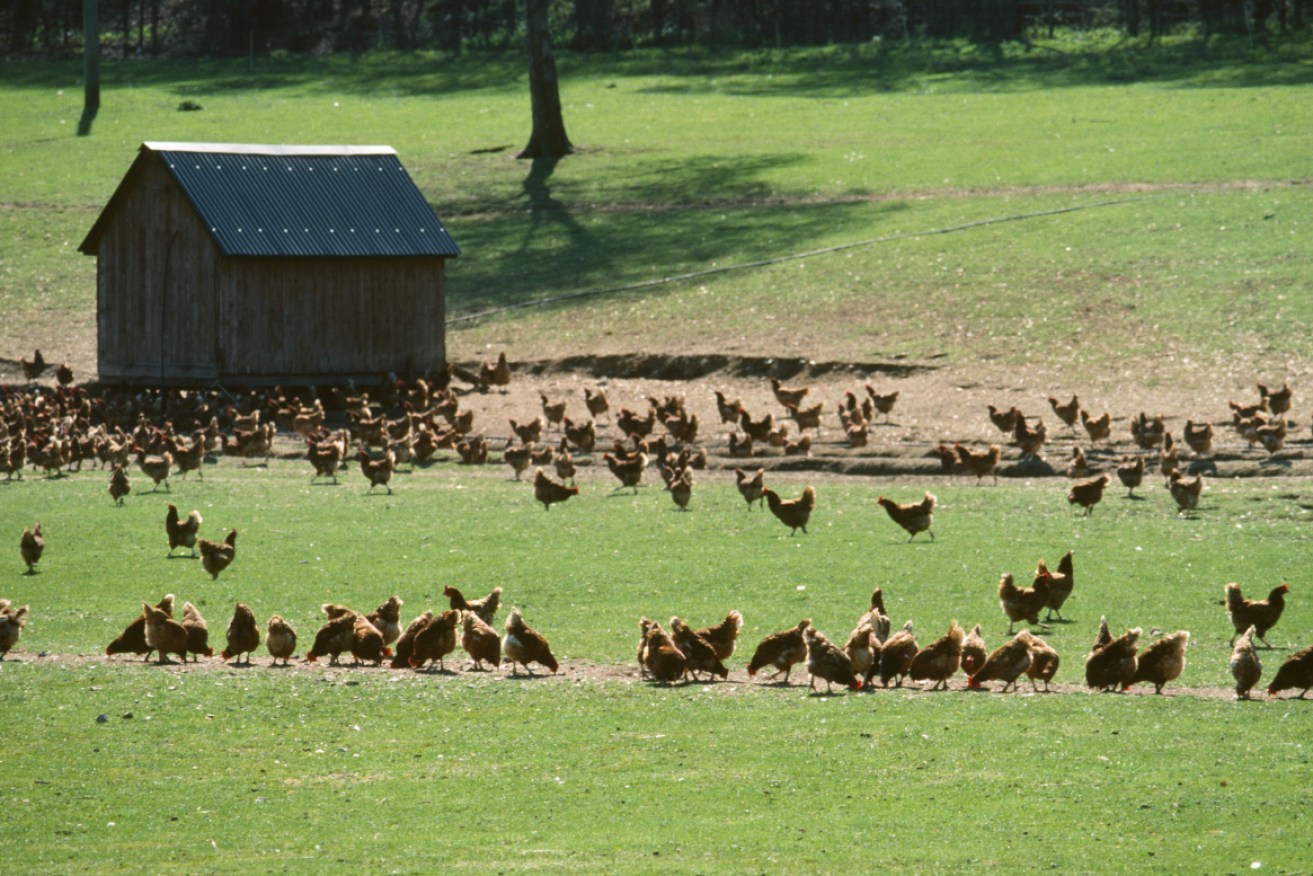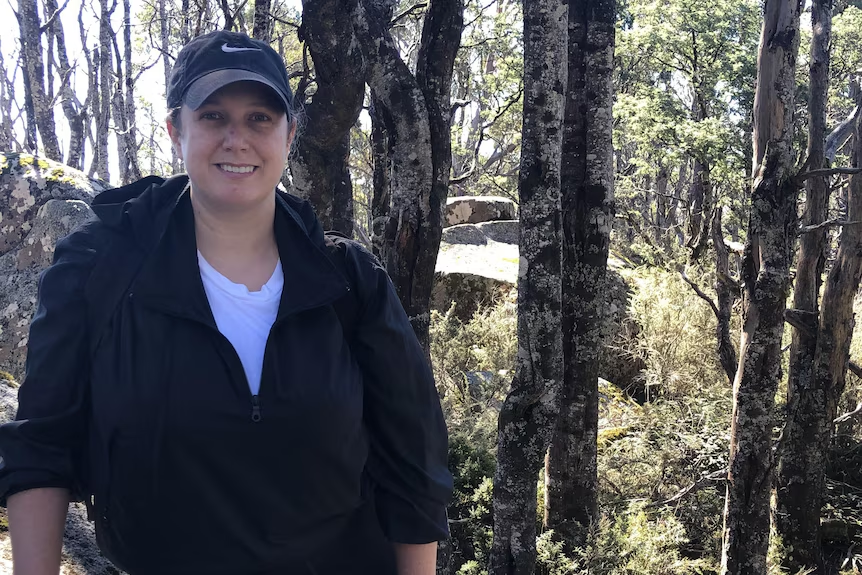Eggs wars: Salmonella outbreaks blamed on free-range farming


Big egg producers lobbied to win free-rang status for chickens stocked at 10,000 birds per hectare. Has it come back to bite hem? Photo: AAP
Australia’s appetite for eggs could be our downfall as egg-related salmonella cases spike nationwide, while scientists scramble to debunk the mystery strain of a disease that has plagued the industry.
If you want to buy safe eggs from the big supermarkets – that is, salmonella free – buy caged eggs and not free range.
That’s the message given to The New Daily this week from smaller free-range producers, which tend to sell in boutique outlets because they don’t have the bulk to win a place on supermarket shelves, and from the head of the egg group for the Victorian Farmers Federation.
Throughout the egg industry, and in media reports, the prevailing opinion seems to be: The cluster of interconnected salmonella outbreaks – nine so far since September, six farms named, with hundreds of people made ill – are a result of large scale free-range farming where birds are controversially stocked at 10,000 per hectare.

Salmonella is killed by heat. The only safe egg is a cooked egg. Photo: Getty
Big egg farms and the major supermarkets lobbied hard for the 2016 legislation that allow free-range labelling on eggs produced at those high densities – despite opposition from consumer advocates such as CHOICE that supported what was known as the Model Code of 1500 birds per hectare.
People who initially welcomed the legislation – and were quoted in media reports – are now at one with small free-range producers decrying the practise as a disaster.
“They require a semi-trailer load a week – and we can’t do anything like that,” Mr Westwood said.
“So the free-range eggs they have on their shelves are (mainly) from farms with high poultry stocking densities that pose a huge food poisoning risk for consumers.”
The argument goes that birds in such numbers can’t be handled properly, and are effectively wading in manure.
Mr Westwood told The New Daily: “The industry knew it was going to cause a problem with salmonella.”
Caged hens might be suffering but their eggs are clean
Dianne Moore, President of the Free Range Farmers Association, backed up Mr Westwood’s claims.
“Caged hens have horrible lives, so the irony is with this outbreak, if you’re buying eggs from a supermarket, caged are probably safer. But really, you’d be better buying genuine free-range eggs from the smaller stores that stock them,” Ms Moore said.
“The big boys in the industry got what they wanted… and it’s come back to bite them.”
Strangely enough, in broad agreement that free-range farming is only sustainable on a small scale is Victorian Farmers Federation egg group president Brian Ahmed.
While Mr Ahmed insisted to The New Daily that high stocking densities – which he praised when the legislation was passed – aren’t the cause of the problem.
In March he told The Weekly Times: “As an industry we sort of knew this was going to happen, it was a matter of when not if, because the more chickens we put on the ground and the more we run free-range, the higher the risk. That’s why we designed cage eggs in the first place.”
He told The New Daily he stood by those remarks.
One theory that has gained traction in the public imagination: droppings from wild birds flying over a flock infected free-range birds.
But is any of this true? For the moment conjecture stands in the place of hard evidence.
From published reports, it appears most of the infected birds were in fact free range or barn laid. But the outbreak actually started at a farm that houses only caged birds.
An investigation by the NSW Department of Primary Industries is ongoing. All that’s known is that the outbreak is an “exotic” strain, Salmonella Enteritidis, described by the Victoria chief health officer “the cane toad of salmonella”.
The New Daily has learned that the farm where the first outbreak was discovered – Glendenning Farms at Marsden park, 50 kilometres north-west of Sydney – has received formal notification the bacteria was found at the site, which remains closed.
Mustafa of Glendenning Farms, who didn’t want his surname published, said the infection was found on a table – and not in the chickens or eggs. He said: “We do not know how it got there.”
Associate Professor Said Ajlouni is a senior Lecturer in Food Science at the Melbourne School of Land and Environment. He said salmonella bacterium can lie dormant for quite some time and suddenly become active again.
“The key issue here is implementing good farming practises,” he said.
This includes simple things like washing hands. Sometimes farmers become lax. This isn’t just an Australian problem.”
How would an infection spread from farm to farm?
“It could be collecting feed from a particular supplier during this time of the year and the feeding system is contaminated. It could be related to the drought which triggers this bug. It could be multiple reasons,” Professor Ajlouni said.
Wild birds get a reprieve
John Barry is Engagement Officer for Australian Eggs, a not-for-profit marketing and research company linked to the Australian government.
In an email Mr Barry confirmed that outbreak started at Glendenning Farms.
“Since then, a small cluster of farms connected through egg supply arrangements have also tested positive so it seems likely the bacteria has moved via a truck or pallet of eggs. For this reason it’s unlikely the production system has been a determining factor,” he said.
That is, the eggs being barn laid, free range or cage laid isn’t the issue.
And we can conclude at least that wild birds in this instance are off the hook.








